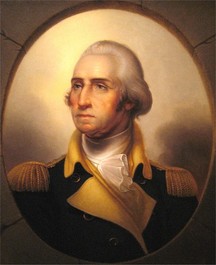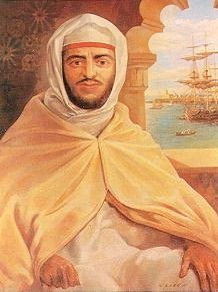Answers to your 4 questions:
Why the series?
More than half of the people in the world (four out of seven billion or 58%) are either Muslim or Christian, and the world’s deepest and most serious geo-political problems stem from the discord between these two faith communities. They have very little personal contact with each other which results in a lack of understanding and an exaggerated amount of fear. While some of this fear is propagated by the media on both sides, much of it results from a lack of personal contact and relationships; i.e. fear of the unknown.
However, the vast majority of people in these two faith communities have similar moral values. They also face common “enemies” (which are not each other) like materialism, lack of traditional values propagated by certain media, hostility toward God, attacks on the family structure, etc.
Very few large media outlets are doing anything to present a positive view of the other side. Most focus on the radical elements of each faith community, further inspiring fear. The average person on both sides sees the daily results of the tension from this “clash of cultures” but feels incapable of being able to help in any way. This makes it easier to accept a “fight” posture instead of seeking a cooperative or complimentary posture.
More than half of the people in the world (four out of seven billion or 58%) are either Muslim or Christian, and the world’s deepest and most serious geo-political problems stem from the discord between these two faith communities. They have very little personal contact with each other which results in a lack of understanding and an exaggerated amount of fear. While some of this fear is propagated by the media on both sides, much of it results from a lack of personal contact and relationships; i.e. fear of the unknown.
However, the vast majority of people in these two faith communities have similar moral values. They also face common “enemies” (which are not each other) like materialism, lack of traditional values propagated by certain media, hostility toward God, attacks on the family structure, etc.
Very few large media outlets are doing anything to present a positive view of the other side. Most focus on the radical elements of each faith community, further inspiring fear. The average person on both sides sees the daily results of the tension from this “clash of cultures” but feels incapable of being able to help in any way. This makes it easier to accept a “fight” posture instead of seeking a cooperative or complimentary posture.

Why George Washington?
As we look for ways to ameliorate this situation, let us look to the example of George Washington and Mohamed Ben Abdullah (the King of Morocco at the time of George Washington). It is little known that these two world leaders created the foundation of strong relations between Morocco and the USA which have lasted over 200 years.

Mohamed Ben Abdullah issued a declaration on December 20, 1777 that all vessels flying under the American flag could freely enter Moroccan ports. This was very important since the Moroccan king controlled the Barbary pirates, who controlled the Straits of Gibraltar and therefore entry to the Mediterranean Sea. It is amazing to note that this declaration was written one day after George Washington and his troops entered Valley Forge. The USA was not yet a country and there were probably many who thought it wouldn’t make it through the winter. However, a Moroccan Muslim king gave “America” free passage, treating it on par with the European powers.
Again, at the initiation of the Moroccan king, the “Treaty of Friendship and Amity” (also called the Treaty of Marrakech) was signed by Mohamed Ben Abdullah on June 23, 1786 and ratified by Congress on July 18, 1787. This marked the beginning of diplomatic relations for the United States and remains the longest standing treaty in force between the United States and any other country.
Just six months after becoming president, George Washington wrote to Mohamed Ben Abdullah, renewing his request for the King’s help. Washington knew that he was president of a small, poor nation, and looked to a Muslim king for help.
Why start in Washington DC?
George Washington is commonly known as the “Father of the Country” because of his role as the Commander and Chief of the Continental Army, and because he served as the first president of the United States. Equally compelling but less known, George Washington (as well as his father) were members and vestrymen in the Anglican churches of Northern Virginia (Fairfax and Arlington counties). Figuratively speaking, the spiritual descendants of George Washington desire to reach out to their Muslim brothers and sisters through this program in a modern day gesture of friendship and amity.
George Washington is commonly known as the “Father of the Country” because of his role as the Commander and Chief of the Continental Army, and because he served as the first president of the United States. Equally compelling but less known, George Washington (as well as his father) were members and vestrymen in the Anglican churches of Northern Virginia (Fairfax and Arlington counties). Figuratively speaking, the spiritual descendants of George Washington desire to reach out to their Muslim brothers and sisters through this program in a modern day gesture of friendship and amity.

